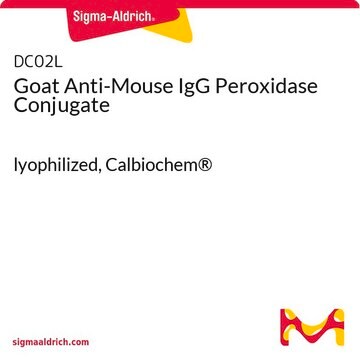P0085
Anti-Podoplanin antibody, RAT monoclonal
clone NZ-1.2, purified from hybridoma cell culture
Synonym(s):
Anti-AGGRUS, Anti-GP36, glycoprotein, 36-KD, Anti-GP40, Anti-Gp38, Anti-OTS8, Anti-T1A, Anti-T1A-2
About This Item
ICC
IP
WB
immunocytochemistry: suitable
immunoprecipitation (IP): suitable
western blot: 4-8 μg/mL using U87 total cell extract
Recommended Products
biological source
rat
Quality Level
conjugate
unconjugated
antibody form
purified from hybridoma cell culture
antibody product type
primary antibodies
clone
NZ-1.2, monoclonal
form
buffered aqueous solution
mol wt
antigen ~36 kDa
species reactivity
human
concentration
~1.5 mg/mL
technique(s)
flow cytometry: suitable
immunocytochemistry: suitable
immunoprecipitation (IP): suitable
western blot: 4-8 μg/mL using U87 total cell extract
UniProt accession no.
shipped in
dry ice
storage temp.
−20°C
target post-translational modification
unmodified
Gene Information
human ... PDPN(10630)
General description
Immunogen
Application
- immunoblotting
- immunoprecipitation
- flow cytometry
- immunocytochemistry
Immunohistochemistry (1 paper)
Western Blotting (1 paper)
Biochem/physiol Actions
Physical form
Disclaimer
Not finding the right product?
Try our Product Selector Tool.
Storage Class Code
10 - Combustible liquids
Flash Point(F)
Not applicable
Flash Point(C)
Not applicable
Personal Protective Equipment
Choose from one of the most recent versions:
Certificates of Analysis (COA)
Don't see the Right Version?
If you require a particular version, you can look up a specific certificate by the Lot or Batch number.
Already Own This Product?
Find documentation for the products that you have recently purchased in the Document Library.
Our team of scientists has experience in all areas of research including Life Science, Material Science, Chemical Synthesis, Chromatography, Analytical and many others.
Contact Technical Service








